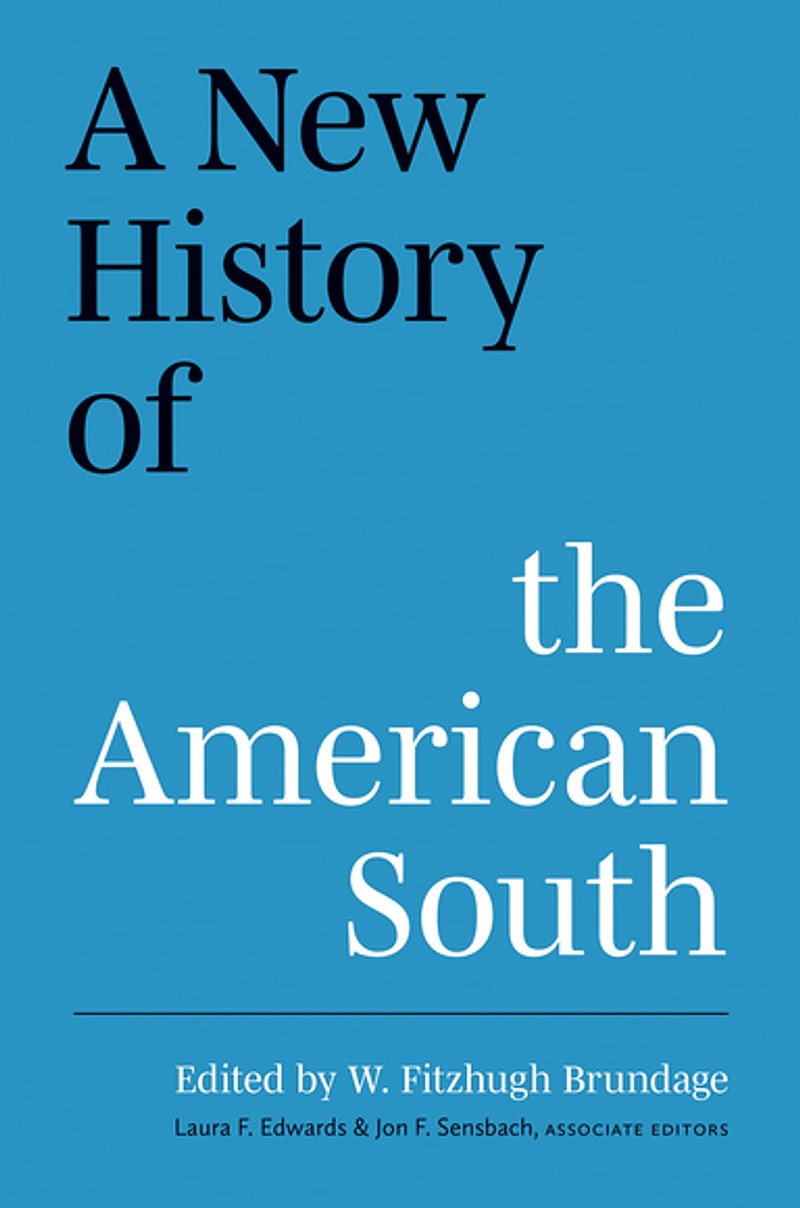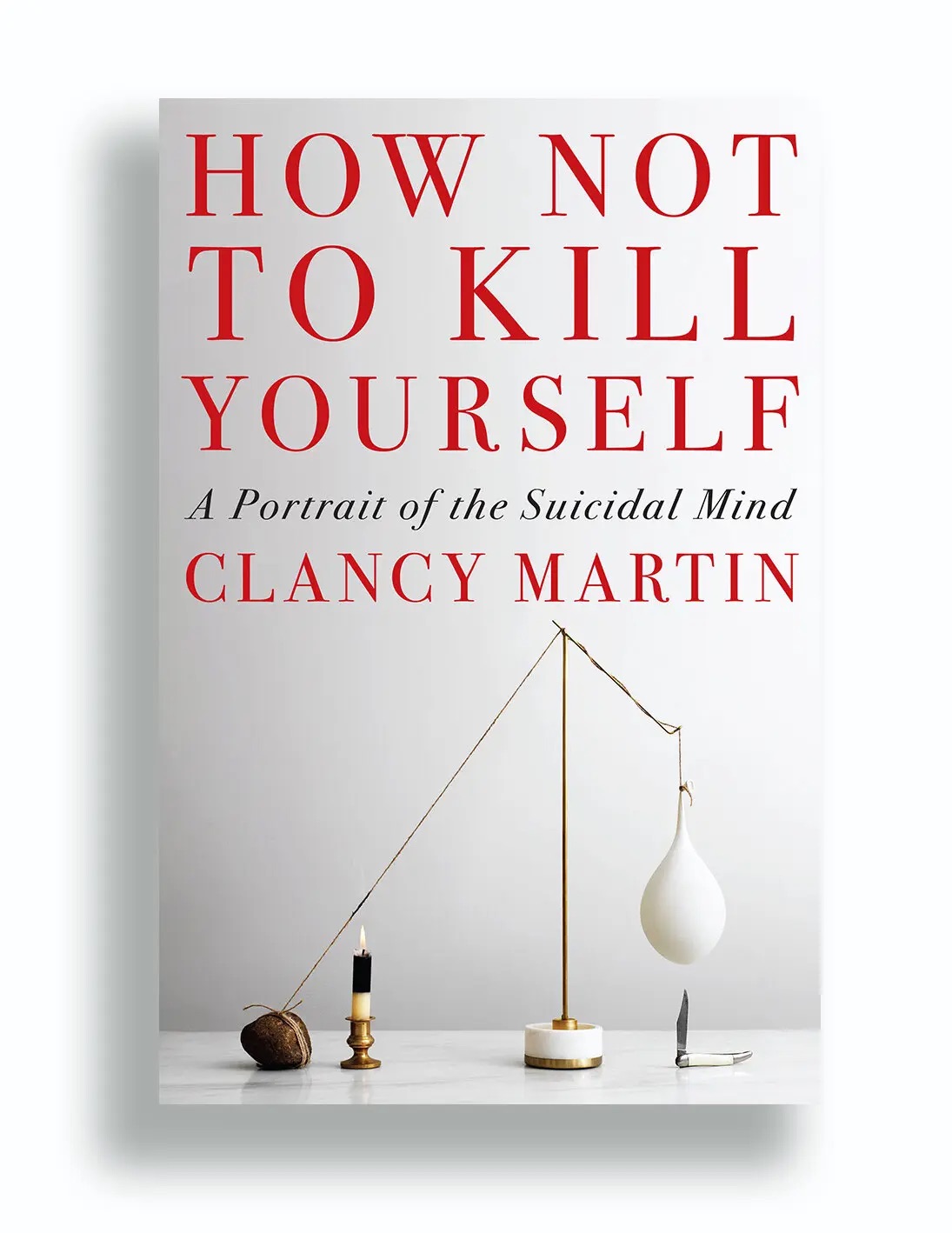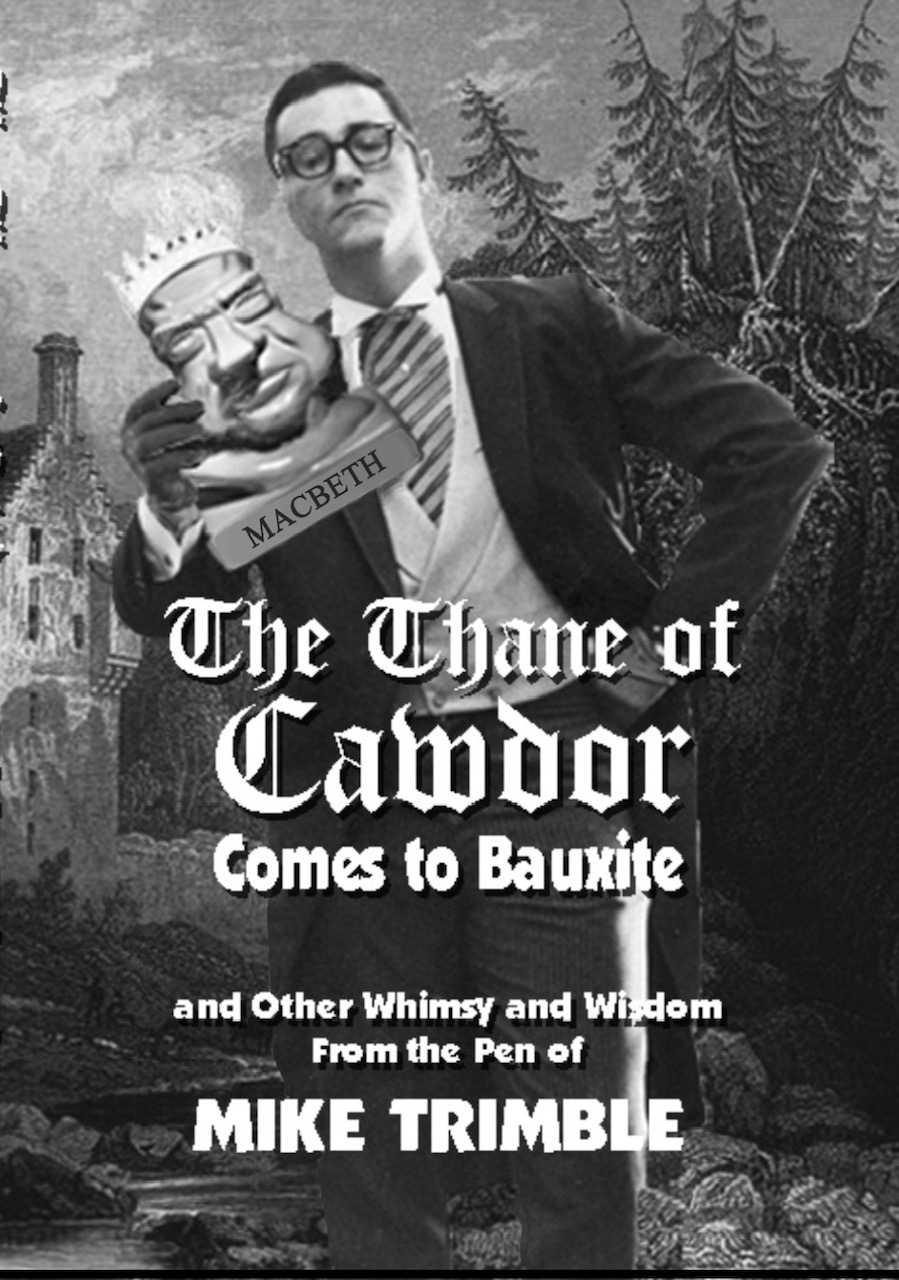There was a story in this newspaper by The New York Times' Anna Kodé recently about how interior decorators use fake books to dress up spaces and make their clients look erudite. This practice is mildly controversial, but nothing new.
Kodé quotes Anna Shiwlall, owner of 27 Diamonds Interior Design in Anaheim, Calif., who says she often uses fake books, especially if they are "of certain sizes or colors that coordinate with the room or if we want the client to feel a portrayal of a well-traveled life."
"Not too many people read physical books now, but we are reminded of certain things when we're surrounded by them," Shiwlall says, which is undoubtedly true. And maybe most of the people who still buy (and hoard) books do it for reasons other than intellectual edification, for, as Shiwlall says, "[t]he smell of it, the stories it brings or the colors that make the room pop."
I appreciate that Kodé referenced "The Great Gatsby," and the owl-eyed man's admiration of Jay Gatsby's extensive collection of "real books."
He had imagined that Gatsby's volumes would be made of a "nice durable cardboard," dummies designed to give the illusion of a library. But when the owl-eyed man pulls a book from the shelf, he discovers "a bona-fide piece of printed matter."
"It fooled me," he says. "This fella's a regular Belasco. It's a triumph. What thoroughness! What realism! Knew when to stop, too -- didn't cut the pages. But what do you want? What do you expect?"
That quote contains a couple of allusions that might be confusing to modern readers. When Owl Eyes calls Gatsby a "Belasco," he's making reference to theatrical producer and playwright David Belasco, who went to extreme pains to make his plays as realistic as possible, with naturalistic acting, unobtrusive lighting effects, and elaborate and detailed sets. He's admiring Gatsby's stagecraft.
As far as the books pages being uncut, 100 years ago, books had to be cut open to be read. Gatsby's uncut pages serve as proof that his books have never been opened, much less read. (The modern equivalent might be a shrink-wrapped Library of America volume.)
THE GREAT FRAUD
The point F. Scott Fitzgerald is making is that Gatsby (spoiler alert: that's not his real name) is a fraud. He wants people to believe he's an Oxford man when in truth he spent a few weeks there after the war. He wants people to take in his library and assume he's well-read when in fact he has never cracked the covers. Gatsby is an imposter, a kid from rural North Dakota who, from childhood, dreamed about becoming the sort of mysterious wealthy stranger with, as, Ron Burgundy would say, many leather-bound books.
"The truth was that Jay Gatsby of West Egg, Long Island, sprang from his Platonic conception of himself," Fitzgerald writes. "He was a son of God -- a phrase which, if it means anything, means just that -- and he must be about His Father's business, the service of a vast, vulgar, and meretricious beauty. So he invented just the sort of Jay Gatsby that a 17-year-old boy would be likely to invent, and to this conception he was faithful to the end."
I think of a lot of things when I read that passage; Gatsby is an American archetype. Bob Dylan and Roger Maris and Donald Trump are all, in their way, Gatsby-esque. Gatsby, c'est moi.
My books aren't fake, but neither are they all open. As the saying goes, there isn't time enough to even fake it all that well. The other night when my friend Eli Cranor asked me if I'd read anything good lately, I drew a blank. (His book had been the last one to make an impression on me.)
I muttered something about "A New History of the American South," an impressive collection of scholarly writing from the University of North Carolina Press (edited by W. Fitzhugh Brundage, Laura F. Edwards and Jon F. Sensbach), but was hardly what he was looking for. He wanted a line on a someone new (to him) that might either inspire him (or make him want to quit).
'DEMON COPPERHEAD'
Then, to compound my embarrassment, I didn't quite catch the author of the new novel Eli said he'd been blown away by. I typed "Demon Coppersomething" into the notes app on my phone. When I got home I realized he was talking about Barbara Kingsolver's "Demon Copperhead," a re-imagining of Dickens' "David Copperfield" which shared the 2023 Pulitzer Prize for Fiction with Hernan Diaz's "Trust."
Oh, that "Demon Copperhead."
I suppose, as someone who has been practicing some sort of literary criticism for 40 years, that I should be embarrassed to admit that I've read neither of this year's Pulitzer Prize for Fiction winners, but we all have our blind spots, and I'm going to start the Kingsolver tonight.
I lost track of her after "The Poisonwood Bible," but remember marveling at her first novel, "The Bean Trees," when it came out in 1988, and recall how Jack Butler -- author of "Ju-Jitsu For Christ" and "Living in Little Rock With Miss Little Rock" -- started out his "Bean Trees" review in The New York Times: "Barbara Kingsolver can write."
I had to look up the next sentences: "On any page of this accomplished first novel, you can find a striking image or fine dialogue or a telling bit of drama. This, for example, from page 59: 'Her old hand pawed the air for a few seconds before Ivy silently caught it and corralled it in the heavy black sleeve.' Even when the line is quoted out of context, we can see in it the clumsy animal intransigence of a stubborn old woman in those verbs, and the darkness of fate and motive in that heavy black sleeve."
Jack Butler can write. Eli Cranor can write. And when, 35 years apart, they tell me I ought to be paying attention to Barbara Kingsolver, I ought to listen.
'THANE OF CAWDOR'
And speaking of someone else who could write, Mike Trimble's work has finally been compiled into a useful if far from comprehensive volume, "The Thane of Cawdor Comes to Bauxite and Other Whimsy and Wisdom from the Pen of Mike Trimble," published by Little Rock's Butler Center Books. It's edited by Trimble's friend and colleague at the Arkansas Gazette (and later the Arkansas Times) Ernie Dumas.
Trimble, who died a couple of years ago, was one of the last newspaper writers possessed of a style both lightly worn and precisely voiced. It sounded natural, but the rhythms and tone were so beautifully tempered and wrought -- so accurate -- they might be taken as music. He was one of the best writers to work primarily in newspapers in the past 60 years or so, and it is notable that he was most comfortable as a reporter rather than an opinion journalist.
The book captures quite well a melancholic insecurity that Trimble had -- he succeeded Bob Lancaster as the Gazette's "Arkansas Traveler" columnist but relinquished the position and went back to reporting after about six months.
"[T]hat may have been my most miserable six months at the Gazette, trying to do that job," Trimble told Dumas in a 2000 interview for an Arkansas Gazette oral history project. "And I think maybe one out of 10 was worth putting in the paper. It was just ..."
Dumas interrupts to tell him that a lot of people, especially in the business, thought a lot of Trimble's columns, that he "developed a great following."
"Well, some people will read anything. First of all, Lancaster had a great following," Trimble says. "And there's some residual effect there, that anybody who is the 'Arkansas Traveler' is going to be pretty good. But I was never as dissatisfied with the work I put out than I was when I was doing that column. Every day I would start out the day with the fear that is the day it isn't going to get written ... the best columns I did were ... when I was out talking to people and reporting on things. When I was sitting there trying to do like Bob Lancaster and just make something out of whole cloth, I just didn't have the wherewithal to do it. And they seemed to me to be contrived and smart alecky. When I was out doing reporting, I did a lot better. But I was too lazy to do that and wanted to be Bob Lancaster. I was out of the phase of wanting to be Charlie Portis. Wanted to be Bob Lancaster and not doing a very good job at it."
Reading "The Thane of Cawdor Comes to Bauxite" is instructive for anyone who didn't grow up reading Trimble and the Gazette (which had a remarkable pack of writers) but I suspect its main audience will be those nostalgic for the pre-Gannett Gray Lady.
I was curious why none of Trimble's Arkansas Democrat-Gazette work was included in the volume -- among other things he covered Jim McDougal's 1994 campaign for Congress -- until I pulled it up from the archives. Trimble's work for the ADG was really good; there's a beautiful and empathetic piece about a young "phantom burglar" driven to crime by poverty and misfortune, but I don't know what I'd have cut to make room for it.
'LETTERS TO DAN'
Other books that I've meant to write about -- I originally pitched this column as a summer reading preview, only to bait and switch the editor into a rumination about imposter syndrome and the futility of keeping current -- include Don House's collection of essays and photos "Letters to Dan: A Philosophical Guide to the Ozarks," published by the Ozark Society Foundation and winner of the Society's Sassafras literature award. To continue a motif, House -- based in Hazel Valley in Washington County -- can write.
Then's there's Jonathan Eig's "King: A Life" (Farrar, Straus and Giroux), the first comprehensive biography of civil rights leader Martin Luther King Jr. in a couple of decades. The pages are cut on my copy -- and yes, deep bibliophiles, I do know there is a technical difference between uncut and unopened pages, though I haven't the patience to explain it here (please save your letters) -- but I've a few things to get around to first.
I haven't read Monica Potts' "The Forgotten Girls" (Random House) yet either, though my wife Karen has and assures me this case study of women living in slipping-down Arkansas is essential. And Todd Brewster's "American Childhood" (Simon & Schuster) is a collection of more than 200 photos of American children -- from the Civil War to the present day -- matched with intriguing essays that interrogate the ways Americans invented, sanctified and idealized childhood.
Two Arkansas-set thrillers are set for July publication -- Sara Flannery Murphy's "The Wonder State" (Farrar, Straus and Giroux) and Kelly J. Ford's "The Hunt" (Thomas & Mercer). I plan to have more on those closer to publication.
"How Not to Kill Yourself" (Pantheon) by Canadian philosopher Clancy Martin is clearly not light beach reading, but it is one of the more remarkable and lucid explorations of the human instinct for self-annihilation I've encountered since Walker Percy's thought experiments about people he termed "ex-suicides" 40 years ago. (Percy believed all serious writers were ex-suicides who start "with [themselves] as nothing and makes something of the nothing with things at hand."
Martin has survived more than 10 suicide attempts, and so is well-suited to comment on the friction between wanting to live and wishing oneself gone. When Percy was dying of prostate cancer and undergoing painful, debilitating treatments, he resolved to carry on with the chemo not for the small chance his own life might be saved but for sake of the children he saw waiting in the cancer ward. Martin seems to be offering his story in a similar vein -- he means to show the suicidal they are not alone.
'AMERICAN SPY'
Finally, to more or less bring things around full circle, Murray Sinclair, a lawyer who lives in Los Angeles and who, in the 1980s, wrote a series of three crime novels about a failing screenwriter named Ben Crandel, has published a book of highly speculative fiction called "F. Scott Fitzgerald: American Spy" (Eclectic Books).
The story behind the book is that Sinclair wrote the book -- a fanciful story about the author, long past his Jazz Age glory days, being recruited to assassinate Marshal Henri-Philippe Pétain, the collaborationist premier of Vichy, France in 1940 -- in the '80s, but didn't try to publish it because he became disgusted with the publishing business. He put the pages in a trunk and went to law school.
When he came across them 30 years later, he decided he liked them and published with the help of a Kickstarter campaign.
Whether or not you quite believe the proffered backstory, the book itself -- which is graced with illustrations by Rick Geary -- is a delightfully entertaining epistolary mystery that has about it a whiff of hoax. Someone will mistake the novel for history granting Scottie -- who famously disbelieved in American second acts -- a fanciful third one.
Email:
pmartin@adgnewsroom.com



